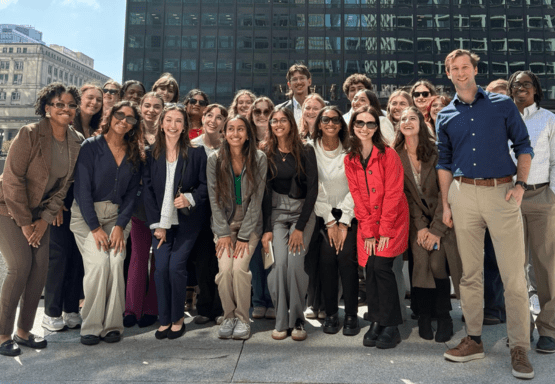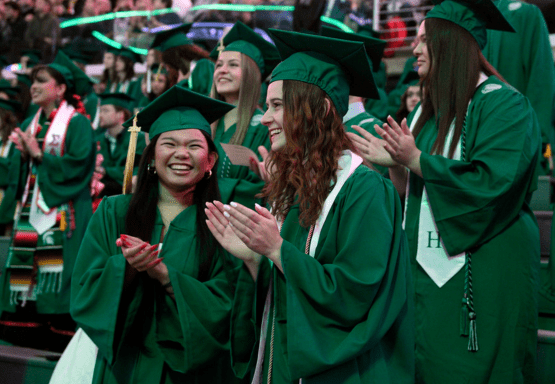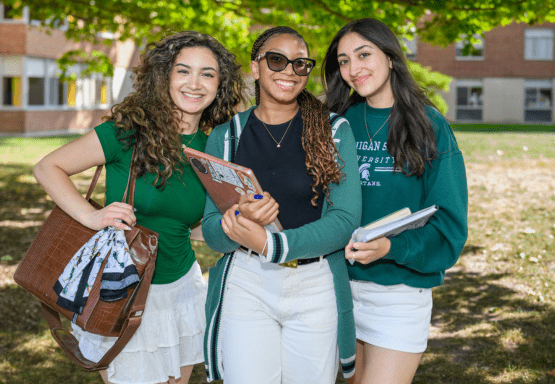Abii-Tah Bih graduated from James Madison College in 2021 with a degree in international relations, and comparative cultures and politics. Abii-Tah is from Bamenda, Cameroon and currently resides in Cambridge, England where she is pursuing her Ph.D. She was the president of ASMSU from 2020-21.
The following content is part of a series titled "Eight years of ASMSU."
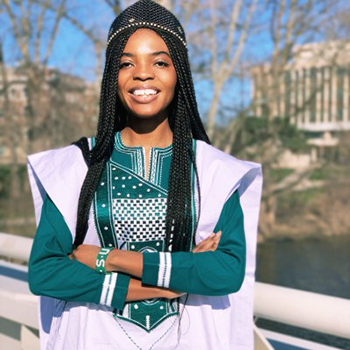
Tell us about your graduate studies, and did you anticipate you’d be pursuing this when you were at Madison?
I’m a Ph.D. student at the University of Cambridge, and I study politics and international studies. My doctoral thesis investigates forcibly displaced persons’ transnational interactions during intrastate conflicts. I draw examples from the Anglophone crisis in Cameroon to understand how diaspora and Internally Displaced Persons’ interactions might implicate a revised theorization of both groups’ socio-political agency and influence in conflicts.
To some extent, I anticipated my current life and work while at MSU. Even as a child, I had nurtured the idea of life service in a public capacity. I was convinced that a doctorate in either politics or international relations would deepen my understanding of the groups and regions I targeted for service. MSU cemented the foundations for my trajectory through my double major in international relations, and comparative cultures and politics.
As you reflect on your time as ASMSU President, what are you most proud of?
I remember the force of the formidable 57th team with a lot of fondness and nostalgia. Everyone, from the General Assembly to the office of the president to staff to class councils to committee volunteers, took on the mantle of service in a time of profound uncertainty: COVID. The stakes were high, the changes were constant, and we were called to pivot, adapt, fight for our lives, and still show up unscathed. We were called to shoulder our students’ stressors even as we balanced our personal losses and dread at the crumbling state of the world.
I am proud of ASMSU’s sustained rage at mediocrity during the pandemic. Most importantly, I am still fascinated by every student’s determination to channel their rage into defending each other through productive solutions. For the first time, the General Assembly met throughout the summer and passed a record number of bills that year.
Team ASMSU successfully advocated for satisfactory/unsatisfactory grading, fundraised and disbursed $80,000+ in grocery gift cards to over 1,000 students who struggled with food insecurity. We raised fists on the streets in protest of the murder of George Floyd and, as president, I rallied alongside three other Black female student body presidents in the Big 10 to openly denounce racial injustice.
In what ways did your time as president prepare or inform the work you have done since graduating?
First, ASMSU, to me, was a microcosm of a model functioning system of governance. The organization was far from perfect, yet it set high standards for what to expect from governance structures and public service leaders. Secondly, maybe it was just idealism or youthful exuberance, but even in the middle of a global health crisis, ASMSU students sustained hope — not to be confounded with delusion. We maintained well-informed, well-researched hope and advocated fervently to bring that hope to our students through welfare projects.
These standards of actionable love, hope and passion for students in the midst of crisis, determined the kind of research I chose for my Ph.D. I decided to work with displaced communities in conflict settings to engage in that same ritual and exchange of hope. The ASMSU hope that extracted grit, camaraderie, ethical governance and innovation from young adults in impossible circumstances is the same hope I seek at every turn in my research.
Is there a particular Madison professor and/or class that really stands out as having been instrumental in shaping your ideas and values?
Two classes stood out to me at Madison. These include Dr. Anna Pegler-Gordon’s MC 112 and the Madison Diversity Leadership Program led by Professors Linda Racioppi, Sejuti Das Gupta and Julia Grant who is now retired. Both classes stood out for the study abroad experiences they offered.
Dr. Pegler-Gordon first exposed me to Cambridge University. Our class spent a day breathing the uni’s crisp air, overhearing multilingual conversations on the streets and navigating architecture that chanted history and heritage. I was enamored and immediately recognized the city as a potential future home. Pursuing my graduate education at Cambridge crystallized because of MC 112.
The Madison Diversity Leadership Program (MDLP) was the most transformative class I have ever taken. It flew a group of 10 students to India right before the pandemic escalated, incorporated internship placements in our mandate, connected us to practitioners in the field and required us to present at research symposiums. Most importantly, the MDLP equipped students from underserved and underrepresented backgrounds to step into political spaces with confidence and ownership.
The MDLP reframed my convictions in several ways. First, it helped define my life’s purpose — to create more inclusive governance structures and instigate meaningful political participation from underserved communities. Secondly, after meeting a plethora of women and girls in rural communities who exuded exceptionalism, resilience and pure advocacy, my worldview shifted.
The rural women’s stories of leadership directly inspired me to run for ASMSU president. I had internalized the idea that my heap of intersectional identities as a Black African international female student unsuited me for such depth of responsibility. In a way, I believed they made me ordinary, so how dare I imagine myself leading in an extraordinary capacity when nobody with an accent like mine had done it before? But those women in India taught me that there are hidden gems in the ordinary and some nurturing, hope and work ethic are all that’s needed to sparkle.
JMC changed my life. I emerged confident in my own agency, originality and ability to rally a strong network to steer the world in more equitable directions.
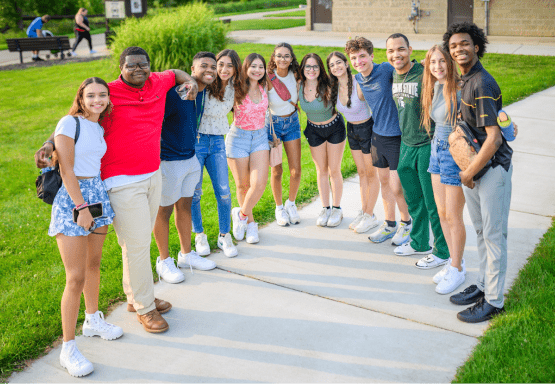
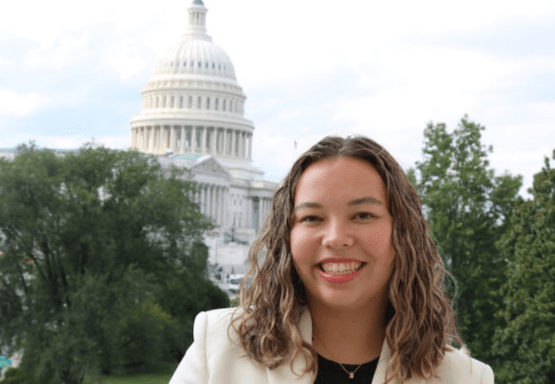
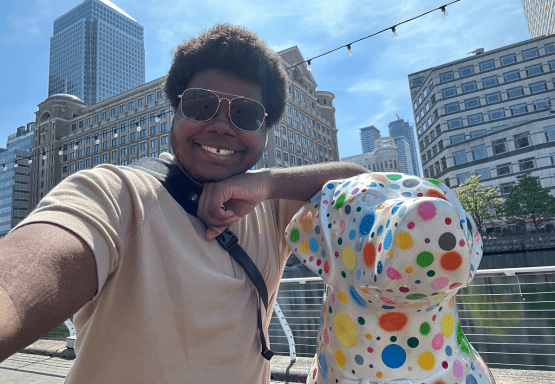
.png?h=384&iar=0&w=555)
